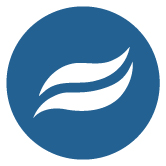

|

|
| Major: 5283
Catalog Year: 2023-2024
Effective Term: 2020 Summer
Last Admit Term: 2023 Summer
Award: CCL Total Credits: 21 CIP Code: 51.1501 |
Primary College:
Initiating College: Rio Salado College
Program Availability: Not Found
Program Availability: College-Specific
Field of Interest: Behavioral Sciences and Human Services
Instructional Council: Counseling (23) GPA: 2.00 |
|
SOC Code: Upon completion of this program, students may pursue a career as:
21-1091.00 Health Educators 21-1093.00 Social and Human Service Assistants 21-1011.00 Substance Abuse and Behavioral Disorder Counselors 21-1014.00 Mental Health Counselors 21-1023.00 Mental Health and Substance Abuse Social Workers | |
|
Program Prerequisites: None
|
|||||||||||
| Required Courses | |||||||||||
|---|---|---|---|---|---|---|---|---|---|---|---|
ASD100 Foundations of Addictions and Substance Use Disorders 3 | Credits: 21 | ||||||||||
| Restricted Electives | |||
|---|---|---|---|
|
| Credits: | ||
| General Electives | |||
|---|---|---|---|
|
| Credits: | ||
| Learning Outcomes | |||
|---|---|---|---|
| 1. Identify symptoms of addictions and substance use disorders. (ASD100)
2. Describe the relapse process. (ASD100) 3. Demonstrate beginning skills in identification of co-occurring disorders. (ASD100) 4. Demonstrate an understanding of ethical communication. (ASD102) 5. Describe the counseling process in terms of objectives and issues of the initial counseling sessions, middle phase, termination of counseling, and follow-up. (ASD102) 6. Describe how to establish the atmosphere for counseling, encourage clients and family members to establish counseling goals, commit to work on those goals, and to become involved in self-help groups. (ASD102) 7. Identify the major concepts and goals of major counseling theories. (BHS205) 8. Identify the fundamental principles of self-help groups and differentiate between counseling and self-help models. (ASD150) 9. Identify and critically analyze the twelve steps. (ASD150) 10. State the psychological and pharmacological effects of substance use/abuse. (ASD110) 11. Explain roles, functions, and limitations of the addictions and substance use disorders counselor. (ASD120) 12. Identify the professional standards for practice, ethics, and development for the addictions and substance use disorders counselor. (ASD120) 13. Describe strategies and treatment modalities recommended for working with persons with AIDS. (ASD145) 14. Identify and describe laws pertaining to confidentiality, maintenance of client records, and reporting child abuse. (ASD161) 15. Demonstrate ability to complete a psychosocial assessment, a mental status assessment, and progress notes. (ASD161) 16. Describe how to establish client rapport. (ASD165) | |||
|
+ indicates course has prerequisites and/or corequisites.
++ indicates that any suffixed course may be selected. MCCCD Governing Board Approval Date: May 24, 2011 | |||